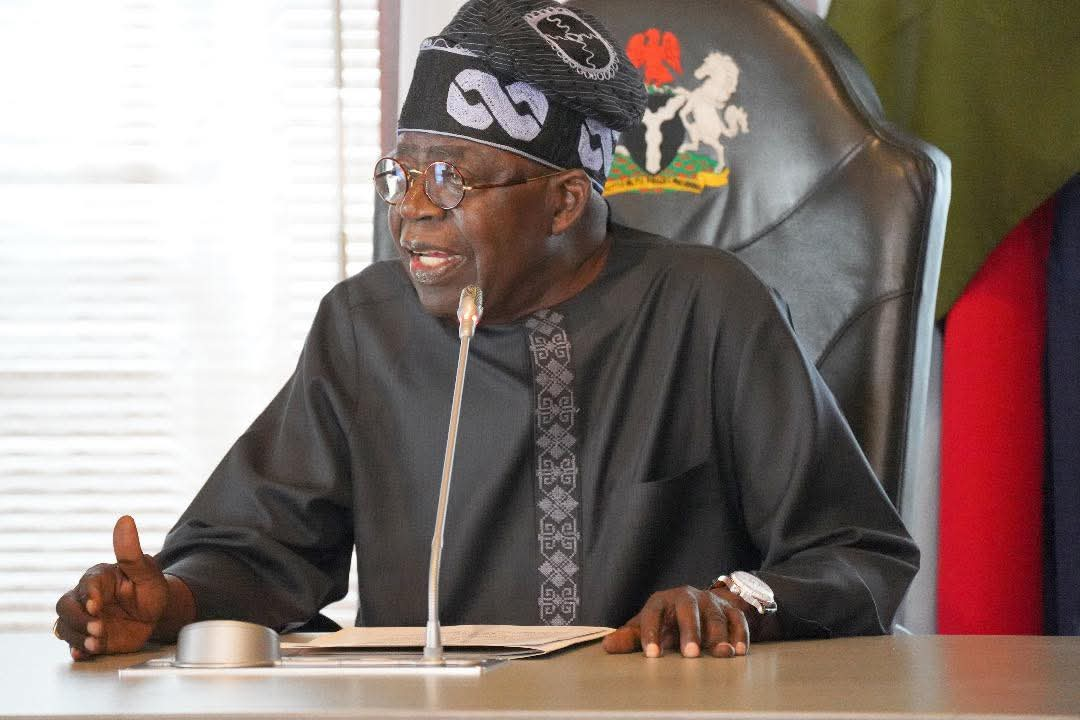In a major strategic pivot, President Bola Tinubu has reportedly directed Nigeria’s top intelligence chief, Director-General of the Department of State Services (DSS), Adeola Ajayi, to shift the country’s defense procurement away from Russia and aggressively court Western arms suppliers -particularly from the United States and Europe. The proposed shift toward US arms manufacturers marks a strategic recalibration, possibly driven by increasing access to light weapons and ammunition, but also reflecting geopolitical signaling under Tinubu’s leadership. Spymaster Ajayi has quickly gained a reputation as one of President Tinubu’s most trusted security operatives. Ajayi’s deep institutional knowledge and operational acumen gives him rare freedom to coordinate high-stakes procurement and security diplomacy with minimal oversight.
The new presidential directive marks a clear departure from Nigeria’s longstanding military ties with Moscow, coming amidst growing tensions in the global arms market and disruptions in Russia’s supply chains due to its ongoing war in Ukraine. According to high-level sources within the presidency, President Tinubu is seeking to “realign Nigeria’s defense interests with more dependable, values-aligned partners.”
Ajayi: The Quiet Fixer
Insiders say Ajayi is already in advanced talks with US and European firms to open Nigeria’s defense market wider to Western manufacturers. His extensive institutional knowledge and credibility within security circles have made him the President’s go-to operative for discreet yet impactful negotiations.
His role is seen as instrumental in fast-tracking approvals, bypassing bureaucratic delays, and ensuring the presidency retains control over the strategic direction of national defense procurement.
Ajayi, who took over as DSS boss in 2024 and has quickly risen as a central figure in Tinubu’s national security architecture, has been tasked with coordinating a new wave of military and intelligence procurement talks with Western defense contractors. Sources say the focus will be on acquiring light weapons, tactical equipment, and surveillance gear to bolster counterinsurgency efforts and improve internal security. “This is a matter of strategic urgency,” a senior presidential aide told Huhuonline.com on condition of anonymity. “Nigeria can no longer rely on unreliable partners. President Tinubu wants capable allies who can deliver on time, without political strings or failed logistics.”
In 2024 alone, Nigeria imported weapons worth over ₦520 billion (approximately $1.2 billion), the highest sum in a four year window. This spike occurred despite government claims that the Defense Industries Corporation of Nigeria (DICON) is beginning to supply other African nations. The steep cost of dependence on foreign hardware has spurred urgent efforts to diversify suppliers and boost local capacity.
Nigeria’s military has traditionally relied heavily on Russian-made helicopters, armored vehicles, and training support. But deliveries have become inconsistent, and fears of Western sanctions have further complicated payments and maintenance. By contrast, the US and its allies have stepped up interest in equipping African partners facing rising terror threats. “The President has lost patience with the old model,” said a security analyst based in Abuja. “The Russians have been outpaced. Tinubu wants the DSS and defense planners to think differently, and that means trusting people like Ajayi to handle sensitive realignments.”
While China remains a dominant arms supplier to Nigeria; accounting for 44% of major imports from 2019–2023, Nigeria is simultaneously forging new partnerships. A previously reported collaboration with NORINCO to expand local arms production under the Defense Industries Corporation of Nigeria (DICON) is still ongoing. However, Western countries may be offered incentives to replicate such ventures under tighter governance oversight. The realignment is likely to have wide-ranging implications for Nigeria’s defense posture and diplomatic relations. Snubbing Russia, long a key partner in Nigeria’s military modernization, could strain ties with Moscow, while strengthening Abuja’s hand in negotiations with Washington, Brussels, and Ottawa. Analysts note that this move aligns with a broader shift among several African nations reassessing their dependence on Russian arms amid delivery failures and reputational risks.
Western defense envoys are expected to visit Abuja in the coming weeks, while DSS officials and Ministry of Defense representatives are being prepared for multilateral security discussions and procurement reviews. A government insider described the move as “a calculated decoupling, not a chaotic divorce.” As Nigeria intensifies efforts to combat terrorism, banditry, and transnational organized crime, Tinubu’s decision to reboot the country’s military alliances may reshape not just its security landscape, but also its global standing





